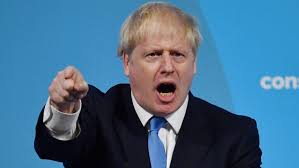Fra ABN Amro
Global Macro: US-China ‘deal’ does not change our below-consensus growth views – Last Friday, US President Trump announced a preliminary ‘Phase one’ partial trade deal with China, with details to be further fleshed out and concluded in a future Trump-Xi meeting at a G20 Summit in mid-November.
Note that China officially did not refer to a deal being reached, only that ‘progress has been made’; Trump already labeling it a deal suggests in our view an attempt to support market sentiment. Indeed, nothing has actually yet been agreed in writing. The escalation of trade/tech tensions between the US and China since early 2018 has been a key headwind for global growth.
After a re-escalation of US-China tensions since May 2019 – with new tariffs introduced, existing tariffs raised and all kinds of non-tariff measures taken as well – we have seen over the past month some goodwill gestures by both sides suggesting a potential shift in political calculus in both Washington and Beijing. This latest development follows that trend – with hostilities seemingly on hold rather than definitively ending.
The preliminary agreement entails the US from refraining from a scheduled – previously postponed – tariff hike per 15 October (from 25% to 30% on USD 250bn of imports from China) in exchange for China further stepping up agricultural imports from the US. Crucially, the 15% on the remaining c.$175bn of imports yet to be tariffed (scheduled for 15 December) remains on the table as negotiating leverage.
Moreover, the US and China will work on an agreement on exchange rate policies and the protection of intellectual property. While the announcement of this partial deal was welcomed by financial markets and it reduces downside risks somewhat, it does little by itself to change the macro scenario, with businesses likely having built in persistent uncertainty to trade policy into their baseline outlooks (see our recent Global Daily comments on this here).
We remain comfortable with our below-consensus growth forecasts. Even if a more definitive deal is reached in November, we think that strategic tensions, particularly on the technology front, will linger. (Arjen van Dijkhuizen and Bill Diviney)
UK Politics: Brexit deal chances rise, but election still looms – UK assets have outperformed in recent days following the ‘breakthrough’ meeting between UK PM Johnson and Irish PM Varadkar last Thursday, and the move to intensive EU-UK negotiations over the weekend.
The chances of a deal, based on some form of Northern Ireland-only customs arrangement, have certainly risen. However, there are significant obstacles both to a deal being agreed and to any deal passing through the UK parliament. As such, our base case remains for a Brexit delay followed by elections in late November/early December.
Just don’t call it a ‘backstop’ – The latest UK proposal to avoid a hard border on the island of Ireland is for Northern Ireland to officially remain in UK customs territory but to apply both EU and UK customs rules depending on the final destination of goods. Given the difficulty in tracking goods along complex supply chains, this plan looks complicated and vulnerable to fraud, albeit not impossible to implement.
The EU has apparently counter-proposed that Northern Ireland remain in the EU customs union ‘de facto’ but to be part of UK customs territory ‘de jure’, something the UK has for now rejected – leading EU chief negotiator Barnier to state last night that ‘a big gap’ remains on customs arrangements. A final deal could meet somewhere in the middle, with NI de facto remaining in the EU customs union until the UK’s proposals are proven to be workable.
Parliament could be the bigger hurdle – PM Johnson’s government has a minority of MPs in parliament, and so even if a deal is agreed with the EU, it will be a struggle (though not impossible) to get it through parliament. Aside from keeping all Conservatives (including recently expelled MPs) and the Northern Irish DUP on board, PM Johnson will have to rely on some Labour MPs to vote in favour.
Given Johnson’s proposals are for an even harder Brexit than PM May’s deal – with mainland UK-EU customs checks (which will hamper the manufacturing sector), and the potential dilution of worker and environmental protections – Labour MPs will struggle to support the deal.
Some MPs from Leave-voting constituencies might view it as the lesser of two evils if it removes the risk of the Conservatives winning on a no-deal Brexit platform in the looming election. However, as a base case, we doubt PM Johnson will get enough support to take the deal over the line.
Election remains unpredictable – As such, we continue to expect PM Johnson to comply with legislation requiring a Brexit delay in the event no deal is passed by parliament, after which we expect a general election to follow in late November/early December. While PM Johnson’s Conservatives currently enjoy around a 10-point lead in the opinion polls, polling has been highly volatile over the past year, with many Conservative voters ready to switch allegiances with the Brexit Party should they lose trust in PM Johnson’s ability to deliver Brexit.
Given this, the outcome of the election is highly unpredictable, depending on the following factors: 1) whether Conservatives campaign on a no-deal (if EU does not agree), or a deal platform (if EU agrees but parliament doesn’t pass); 2) whether Conservative voters punish the Conservatives for the inevitable Brexit delay, 3) the potential for alliances among pro-Brexit Conservatives and the Brexit Party on one hand, and anti-Brexit Labour, Liberal Democrats and Greens on the other









